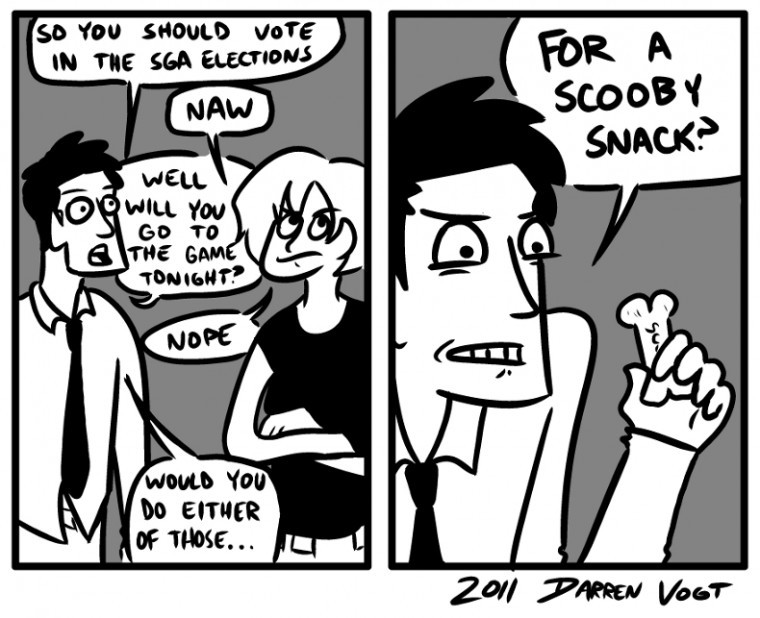EDITORIAL: Use your rights: Students should voice opinions about campus issues
April 12, 2011
The Issue: Despite student complaints, there is a painful lack of student participation in important campus life activities.
OUR STANCE: Students should be more proactive in keeping up with current campus events and engaging in them.
Apathy among students has been demonstrated in several aspects of campus life from game attendance to guest lectures, and most recently in the lackluster voting totals of the Student Government Association elections.
The WKU Quick Facts Page lists the student population as 20,712 as of fall 2009. Out of all those potential voices, only 1,066 students exercised theirs in the SGA presidential election.
For whatever reasons, students seem uninterested in political involvement, though the leaders make powerful decisions that affect all students. Perhaps students don’t know what influence lies within SGA or the kind of support it offers students and student groups. But without the participation of the people it is meant to serve, SGA can only offer so much without seeming favorable toward certain groups or projects.
As students continue to ignore opportunities for input – elections, surveys, feedback forums – they limit the reach of bodies like SGA in serving the whole campus.
Essentially, an overall lack of participation leads to the same small group of students fighting for issues to benefit their individual agendas. And if the same people are involved time and again, SGA’s energy, funding and support will be poured into the same or similar causes each year, which keeps the growth of student life at a standstill.
Furthermore, if the same leaders are holding the decision-making positions, there will likely be little room for a difference in thinking. This is not to say the current SGA leaders are doing anything wrong. But, for instance, two of the three executive positions were unopposed in the most recent election. And there were also only 35 candidates competing for 36 senate seats.
Ideally, there should be a level of competition and challenge to incumbent officers from new, active students. But since there is not, SGA representatives become repetitive, which also might contribute to students’ complacency.
Many students complain but only a few take an active interest in working with student groups that have the power to change things. The Herald thinks some students are unaware of the impact groups like SGA can have. Others are aware and simply don’t care. The SGA president, for example, is on the Board of Regents, which makes decisions that effect the entire student body.
While responsibility lies with both sides – the students to be more active and the student groups to promote more creatively – there has to be an improvement from only about one in 20 students engaging in political culture.
We encourage each student to first seek information about their rights on campus and, secondly, to act on them. Otherwise, they will be caught in situations they might disagree with, having no one to blame but themselves.
This editorial represents the majority opinion of the Herald’s 10-member editorial board.























